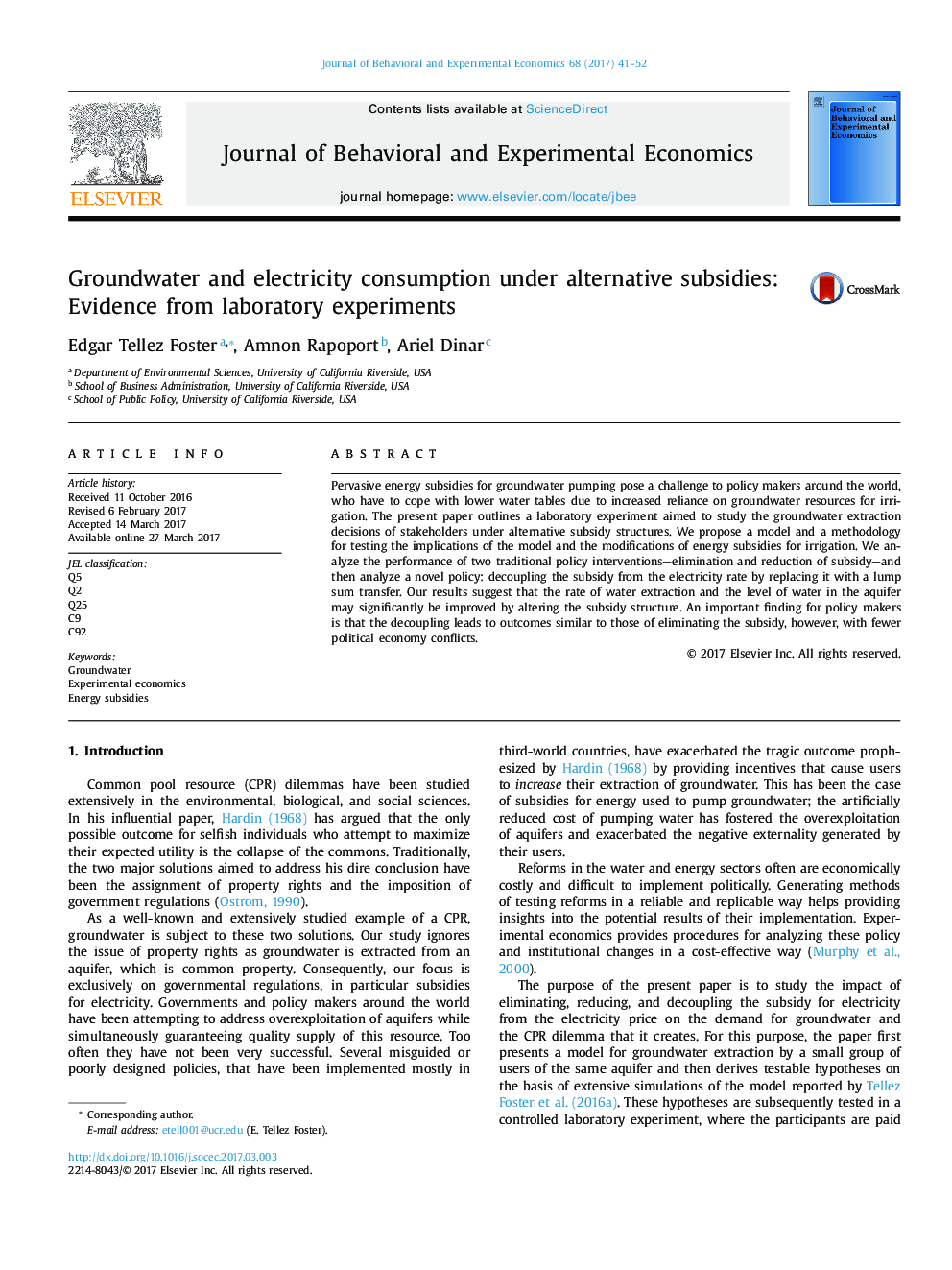| Article ID | Journal | Published Year | Pages | File Type |
|---|---|---|---|---|
| 5034099 | Journal of Behavioral and Experimental Economics | 2017 | 12 Pages |
Abstract
Pervasive energy subsidies for groundwater pumping pose a challenge to policy makers around the world, who have to cope with lower water tables due to increased reliance on groundwater resources for irrigation. The present paper outlines a laboratory experiment aimed to study the groundwater extraction decisions of stakeholders under alternative subsidy structures. We propose a model and a methodology for testing the implications of the model and the modifications of energy subsidies for irrigation. We analyze the performance of two traditional policy interventions-elimination and reduction of subsidy-and then analyze a novel policy: decoupling the subsidy from the electricity rate by replacing it with a lump sum transfer. Our results suggest that the rate of water extraction and the level of water in the aquifer may significantly be improved by altering the subsidy structure. An important finding for policy makers is that the decoupling leads to outcomes similar to those of eliminating the subsidy, however, with fewer political economy conflicts.
Related Topics
Social Sciences and Humanities
Economics, Econometrics and Finance
Economics and Econometrics
Authors
Edgar Tellez Foster, Amnon Rapoport, Ariel Dinar,
